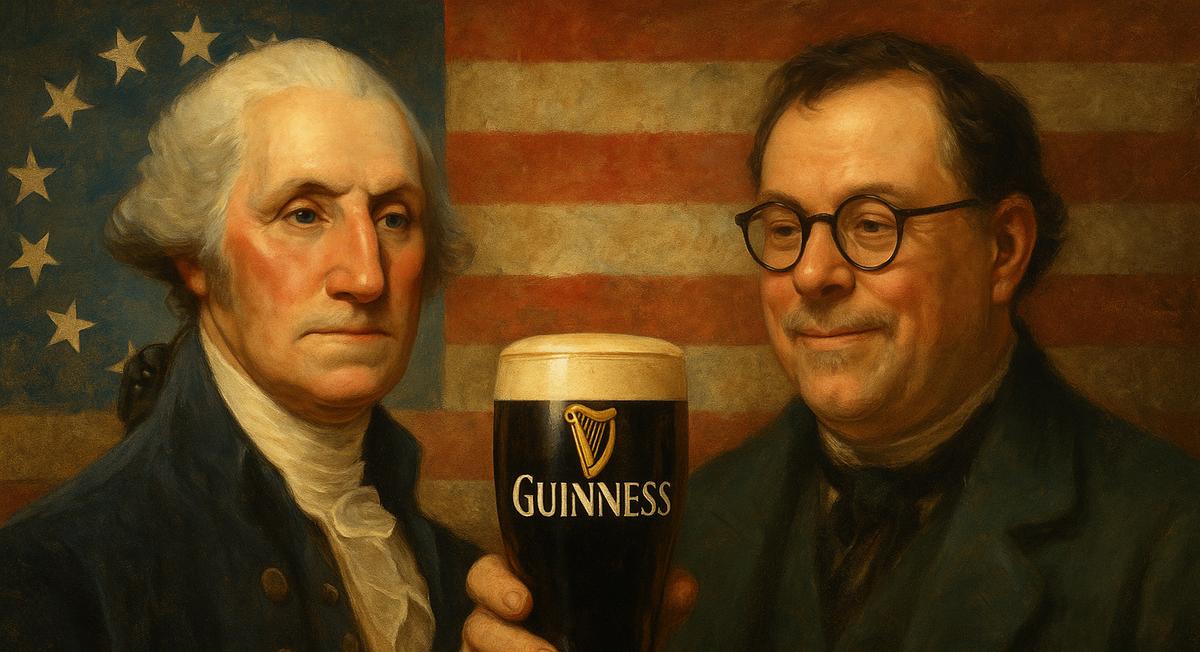Life, Liberty, and the Pursuit of Porter
While America declared independence, Arthur Guinness brewed a quieter revolution—one that carried porter from Dublin to the New World.

By 1776, St. James’s Gate had been pouring for nearly two decades. While revolution fermented across the Atlantic, Arthur Guinness was building a different kind of defiance—commercial, cultural, and stubbornly Irish. This is the story of how porter moved through policy and trade, and eventually onto American tables.
Charles Carroll, the grandson of a Scots-Irish immigrant to Maryland, stood alone as the only Catholic signer of the Declaration of Independence. He joined the likes of Jefferson, Adams, and Washington in declaring the colonies' independence from the crown of King George III—an empire that also ruled over Guinness’s native Ireland.
While revolution brewed in America, Arthur Guinness was lobbying his own version of Parliament—the English-controlled Irish House of Commons—to change the tax code. In 1777, he succeeded. The result? Porter began its journey east into England, and not long after, west to the Caribbean and eventually North America.
By the 1790s, Guinness porter was making its way into the New World. Though colonial brewers were often inspired by the German and British ale traditions, porter had already gained renown among America’s founders. Thomas Jefferson and George Washington both referenced porter in their correspondence. In a letter dated July 20, 1788, Washington wrote to his friend Clement Biddle:
“I beg you will send me a gross of Mr. Hare's best bottled porter if the price is not much enhanced by the copious droughts you took of it at the late procession.”
—George Washington
And so the black pint flowed alongside a rising republic.
The Pint and the Principle
In a sense, Guinness and the American experiment rose in tandem—two acts of defiance in different forms. One, a political revolution founded on liberty and representation. The other, a quiet revolution in commerce and culture, rooted in Irish resilience and ingenuity.
When we raise a pint today on the 4th of July, we’re not just toasting fireworks and freedom. We’re sipping a deeper story—a transatlantic exchange of ideas, ideals, and identity. A story where a drink from a small island became a global symbol not only of taste, but of tenacity.
So here’s to independence—both declared and brewed.
Here’s to Irish roots and American revolutions.
And here’s to the long, stubborn pour that connects us still.



Comments ()